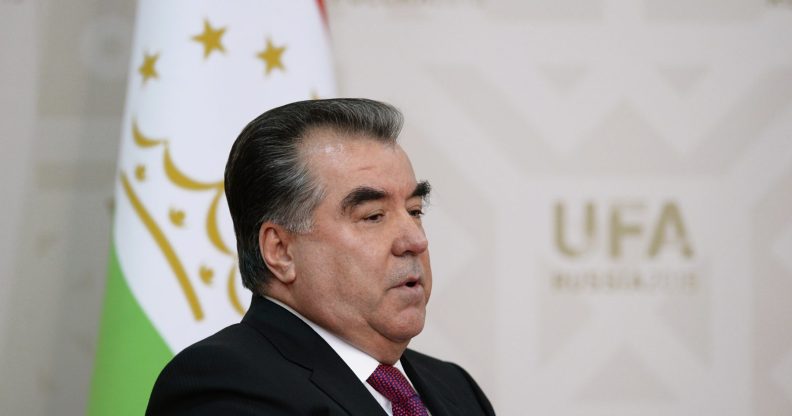Tajikistan has identified hundreds of gay and lesbian people for ‘Operation Purge’

(Getty)
Tajikistan has created a list of homosexual people in a move which it called “Operation Purge”.
Officials have drawn up a register of 367 gay and lesbian people, who they have intimated will be forced to undergo testing to avoid “the spread of sexually-transmitted diseases”.
The list includes 319 gay men, 48 lesbians and no trans people in the nation of 8.7 million, according to Zakonnost, a newspaper published by Tajikistan’s state prosecutor.

Tajikistan’s President Emomali Rakhmon (Getty)
Two operations were reportedly carried out last year to unearth the names of LGBT people.
They were called “Purge” and “Morality”.
The central Asian country removed the prohibition on gay sex in 1998.
However, the mainly Muslim country – which is officially secular – does not recognise same-sex couples or protect its LGBT people from discrimination.
Zakonnost did not detail what kind of tests would be performed on the gay and lesbian people on the list.
It said people had been “put on a register due to their vulnerability in society and for their safety and to prevent the transmission of sexually transmitted diseases.”

Russian President Vladimir Putin with Tajikistan’s President Emomali Rakhmon (Getty)
An anonymous police source told AFP that “strict medical records” were required for homosexual people.
This was because “such people have a high risk of contracting sexually-transmitted infections through infectious diseases,” they said.
There are fears that homophobia is growing in the region, with multiple violent LGBT crackdowns being reported this year.
In Azerbaijan, at least 100 gay and transgender people have been detained, beaten and forced to give up friends to authorities, according to activists.

(Getty)
Some of those detained have reportedly had their heads shaved for the purposes of humiliation.
One anonymous victim, a trans woman, said: “I was brutally beaten at the police station.
“There are almost no unharmed spots left on my body.”

(Getty)
In the Russian region of Chechnya, gay and bi men have been rounded up in a purge which has led to more than a hundred men being abused, tortured and killed in concentration camps.
Despite international pressure, the camps are reportedly still in operation, and it is likely dozens of victims have been killed.

